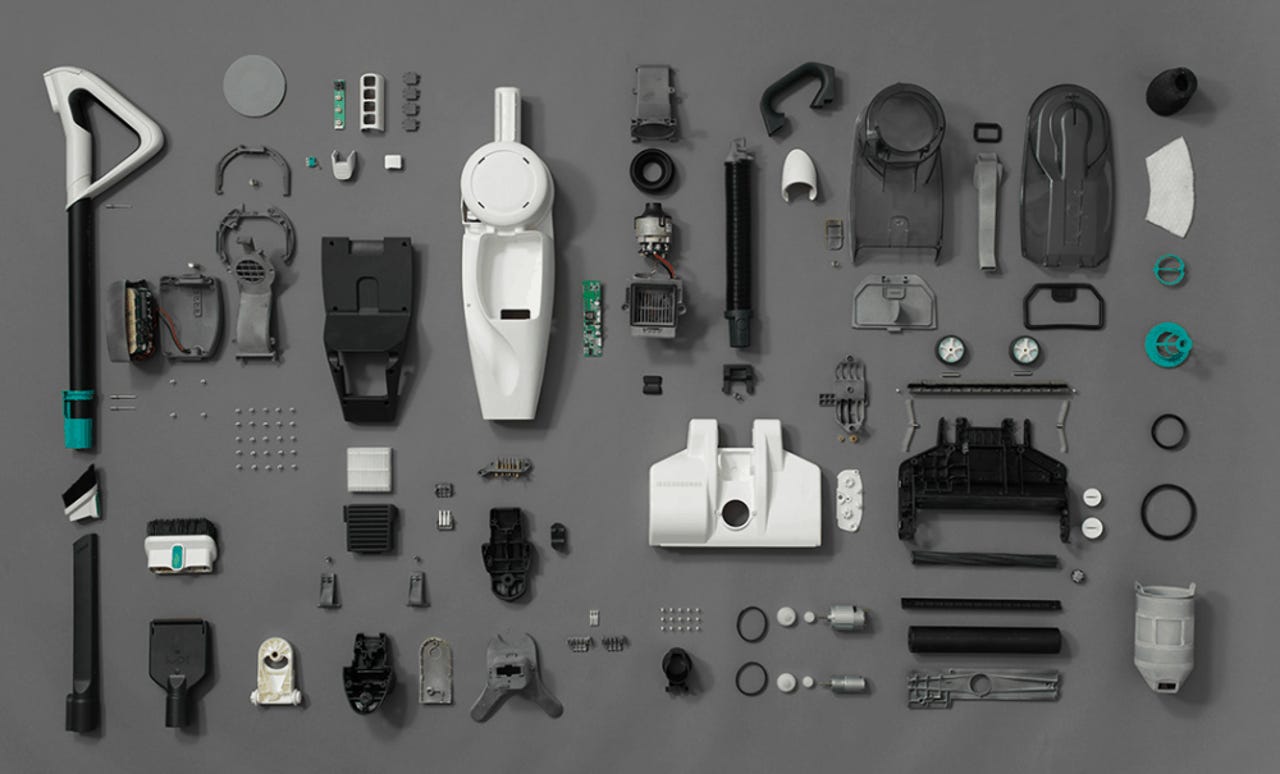Built to last? What this repairable cordless vacuum can teach us


What does a vacuum cleaner have to do with the mounting problem of plastic waste? By taking the stance that this is the last cordless vacuum you'll ever need, a startup called Lupe Technology is hoping to change the way we think about disposable technology.
You're aware of the mess we're in. Plastic waste is out of control. A recent report from The Last Beach Cleanup and Beyond Plastics found that just 5% of consumer plastics are recycled in the U.S. The Department of Energy is raising alarms about the rising levels of landfills and a dispiriting preference among consumers for single-use plastics.
ZDNET Recommends
But the problem is not all plastic forks and cellophane wrappers. Tech is grappling with the ugly realities of an industry built on obsolescence. As the right-to-repair movement gains ground, some savvy companies are leaping headlong into the fray by offering hardware that's designed more like tools were a few generations back, when quality meant decades of service.
"The public consciousness of climate change, pollution, and excess household wastage has undoubtedly increased in recent years and has motivated consumers worldwide to seek more sustainable and ethical products," says Lupe cofounder Pablo Montero. "Yet despite all our good intentions, we are hamstrung by a trend of built-to-break gadgets and household appliances, which is contributing to an appalling amount of plastic pollution and electrical wastage in Britain."
Lupe's Pure Cordless is made from recyclable plastic. The company was founded by former Dyson engineers, and they clearly learned a few things about positioning a product. To save cost and weight, many manufacturers of household appliances like vacuums use thinner plastic welded together instead of using bolts. In turn, these products are more easily broken and can't readily be fixed, forcing consumers to throw the model away. The Pure Cordless is notably robust. And, significantly, it's designed to be worked on: Each small part of the product has been designed to be fully removable, recyclable, and replaceable, which sadly flies in the face of the more common trend of designing appliances to dispose and replace them.
It's also a very good vacuum by all demonstrable stats: durable, powerful, maneuverable, and long-lasting. It has nearly double the useful suction of the leading competitor, a full hour runtime, and a premium washable HEPA filter that allows it to capture 99.99% of all fine dust and allergens.
"The Pure Cordless is the domestic appliance designed not just to shake up the vacuum market but the entire home technology arena," says Montero. "We have strived to make a product as reliable and long-lasting as possible and hope consumers understand our mission to make technology stand the test of time."
All that comes at a price. Lupe's vacuum retails for $599, which is more than many Dyson vacuums. Whether customers will be willing to pay that much for a quality cordless remains to be seen and will be an important test case for a market that's been slow to respond to the mounting crisis of plastic waste. Production of plastics contributed more than 850 million metric tonnes of greenhouse gases to the atmosphere in 2019, with reports showing that white goods make up almost half of all electrical goods thrown away.
Amortized over a much longer service interval the tradeoff almost always favors quality. Let's hope savvy brands can sway customers who recognize that.